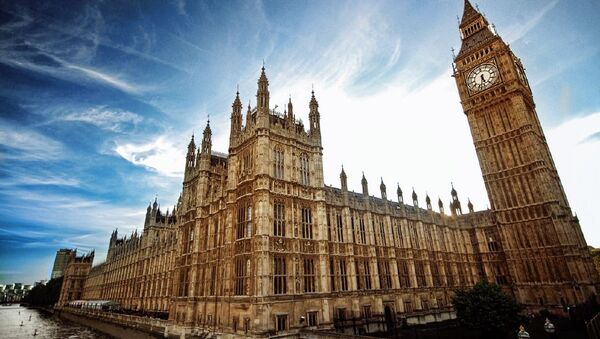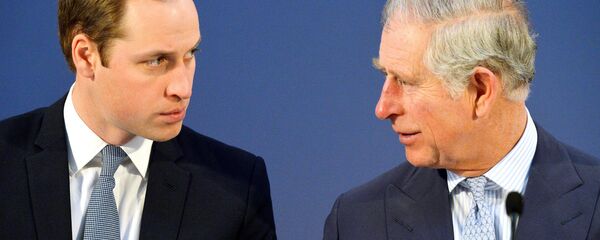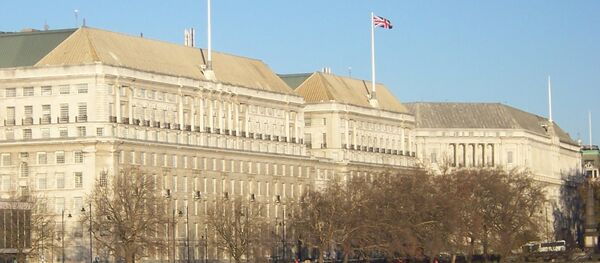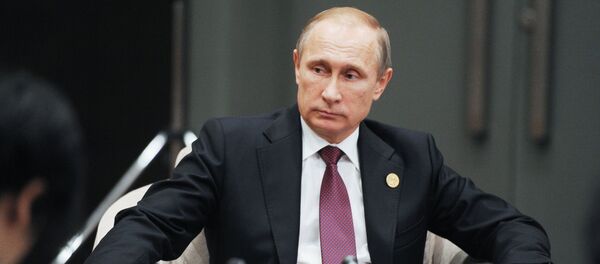In late 1983 there was elation in the UK Foreign and Cabinet offices at the outcome of the Madrid review conference of the implementation of the Helsinki Final Act on security and cooperation in Europe.
The Whitehall mandarins were so happy that they repeated the same sentiment from one briefing note to another.
"… we now have a provisional mandate for a CDE (Conference on Disarmament in Europe) which establishes four basic criteria, all of which have required concession on the part of the Soviet Union and her allies…"
"The CDE mandate … embodies the Western approach, superseding all other proposals."
"The fourth [proposal-NG] is a significant breakthrough for the West. It represents recognition for the first time that the West has a legitimate security interest in the whole of the European part of the Soviet Union."
There were no consolation prizes in the British Cabinet papers for the other side:
"Moreover, the Soviet Union’s attempt to gain a corresponding concession in the exercise of the droit de regard over Western military activities beyond Europe has been neutralized by the West’s insistence that air and sea activities will only be notified when they form a part of otherwise notifiable activities on land," one memo reads.
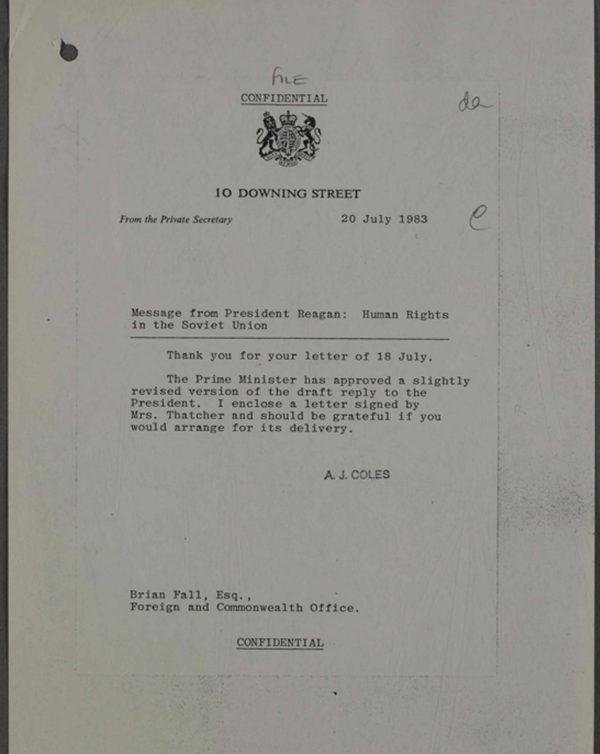
It is interesting to note how this "one-up" over Moscow has now come to haunt Western politicians who are crying foul over Russian air and sea activities.
As for the Confidence Building Measures [CBMs] between Moscow and NATO, the latter went out of the way to reject Soviet requests that since Russia was willing to discuss the extension of CBMs to European Russia, the West should agree to include the United States and Canada in the CBM umbrella. A memorandum by a US diplomat shared by President Reagan with Prime Minister Thatcher praised Western cunningness:
"This geographic ploy was promptly rejected by the West on the ground that the Final Act by express terms is limited to Europe."
However, these “express terms” did not stop the West from raising the issue of Afghanistan at every opportunity during the Helsinki process, which they insisted should be limited to Europe.
"…the most important current Western objective in relations with the USSR should be to increase pressure for a Soviet withdrawal from Afghanistan," a note from a senior diplomat explained.
Western Blame Game
Agreeing to extend CBMs up to the Urals while leaving NATO’s military might across the Atlantic out of the security equation was a major concession from Moscow, offered by non other than Soviet leader Yuri Andropov, who in the West had been portrayed as an ex-KGB hardliner.
However, Moscow’s goodwill gesture was interpreted in London as a sign of weakness.
"…since the mandate is couched in terms which are beneficial to the West, it will at the very least put us in an excellent position to bring pressure to bear on the East, and if all else fails it will leave the East with the onus of explaining publicly why the eminently sensible measures proposed are not acceptable to them," reads a government briefing note.
This need to embarrass the East by putting blame on them goes from one FCO and Cabinet office memo to another as a refrain.
"…it will be important to ensure that any failure to resolve existing problems (or even to engage in meaningful debate) should be seen to be attributable to the Soviet Union (and its allies) and not to the West," reads a Steering Brief for the UK delegation at the CSCE Cultural Forum in Budapest, issued by the Foreign Office on October 15, 1985.
It was viewed as strange that such a brief existed at a time of great improvement in the relations between East and West. The architect of "perestroika" (restructuring) and "glasnost"(openness) who eventually brought about that improvement, Mikhail Gorbachev, was already in power. Moreover, almost a full year before this FCO brief, in December 1984, Gorbachev had visited Britain and offered Prime Minister Thatcher an open and honest dialogue about disarmament and improving international security. He even showed the British premier a secret map of Soviet missile targets in the UK to prove his sincerity. Margaret Thatcher later famously said that she could “do business” with Gorbachev. What kind of business she wanted to do has been revealed by the just declassified Cabinet Office files.
Three Baskets and One Stick
The Helsinki Final Act 1975 contained three "baskets": one on security and disarmament; one on economic cooperation; and one on human rights and contacts. While Moscow was trying to treat all three in a bundled way, the West picked and chose when and how it wanted to go about the Helsinki process. And its weapon of choice was human rights. The UK and US put a lot of pressure on Moscow in the human rights area as a means of extracting additional concessions from Moscow, in hopes of what was euphemistically called in FCO cables "transformation of the system" ("regime change" in today’s parlance).
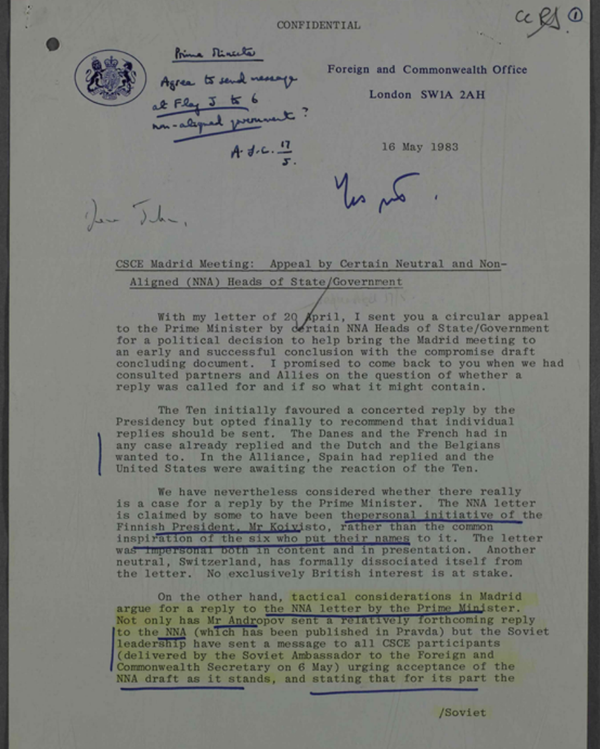
But the veracity of information about human rights violations in the Soviet Union was dubious, by London’s own acknowledgement. In January 1981 Michael Alexander, foreign policy secretary to Margaret Thatcher, referred to an FCO complaint from Jewish rights activists that "the last kindergarten for Jewish children had been closed by the Soviet authorities."
A reply from FCO stated: "You asked for background on the closure of a kindergarten attended by the children of Jewish dissidents. We know that a number of informally organized classes for Jewish children are held in Moscow and other major Soviet cities. We have no independent reports of a single kindergarten in Moscow, but have received news that some of these informal classes in the capital have recently been stopped by the Soviet authorities. As far as we know, however, there have been no arrests in this connection."
Later, during the Budapest Cultural Forum the steering brief to the British delegation stated: "…in speaking for example of minority ethnic/linguistic matters, the UK must be careful only to assert the right of those who wish to study their mother tongue to be allowed to do so. To go further and claim that the authorities are bound to provide the necessary educational facilities would lay us open to criticism."
As for the claims of "thousands" of arrests of dissidents by Soviet authorities, a Foreign Office memo dated June 3, 1980, gave an example of the "quality" of evidence provided by some human rights activists.
- "There was a leak via dissident sources of a private statement by a Soviet official that 50 arrests were planned.
- Only about half that number of dissidents were arrested
- Various dissidents attributed Soviet failure to arrest more people to Western pressure.
This is interesting but not conclusive," stated the FCO memo.
The Cabinet papers reveal that the British government was not averse to using the issue of Soviet Jews in party politics and diplomatic maneuvers in the Middle East.
In his memo dated April 27, 1981, Lord Bethell asked Margaret Thatcher to allow a visit by the wife of one of the better known Soviet Jewish dissidents Nathan Shcharansky, Avital:
"I also think that from a party political point of view, it would be advantageous for the PM to receive Mrs. Shcharansky at this time. She will be well aware of the fact the Jewish communities of north-west London [Thatcher’s parliamentary seat – NG] are concerned about various aspects of government policy – the European initiative on the Middle East, the probability that Lord Carrington will meet Yasser Arafat after July 1st and the Prime Minister’s own recent visit to the Arabian peninsula with its accompanying talk of large British arms sales to the Arab nations. If the PM decides to receive Mrs. Shcharansky, British Jewry will be tremendously gratified and encouraged. It would be a substantial gesture of friendship towards Israel and it would hardly be likely to antagonize the Arab world."
"Western Cultural Pollution"
Antagonizing the Eastern Block though, was a matter of principle. Assessing the value to London of the Madrid review of the Helsinki process, a Foreign Office memo said:
"This standing to criticize the Eastern European governments’ policies, both domestic and foreign, in an international forum is well worth preserving."
The steering brief for the British delegation at the Budapest Cultural Forum was pretty cynical.
"…We must be ready to … refute any assertion by the East that they must protect themselves from Western cultural pollution – pornography, propaganda for racialism and violence." [sic – NG]
"However, the overall UK line on the substance should not be advanced in a manner likely to provoke difficulties …(cf football hooliganism)."
And not just football hooliganism, at it’s ugliest in the 1980s. The British were well aware of other embarrassing features of life under the Iron Lady, including detention without trial, deaths following a hunger strike at the so-called H-Blocks in the Maze prison, the Brixton riots of 1981 and 1985, and bans on demonstrations (11 such bans in 1981 alone).
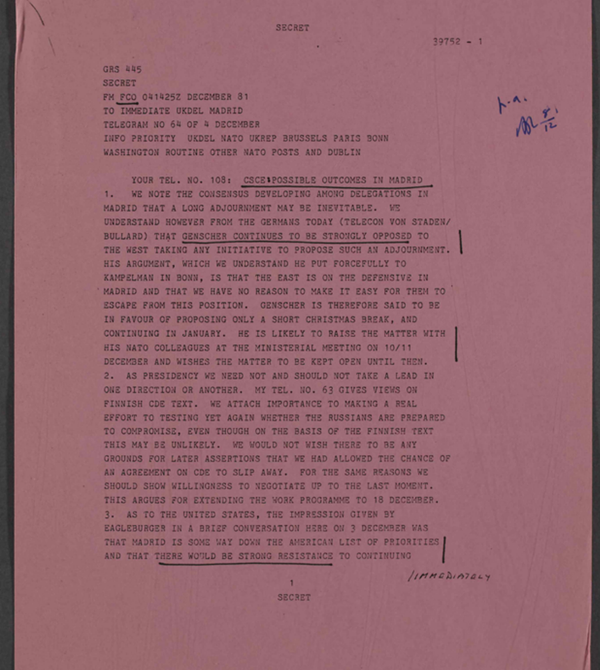
Not to be distracted by such uncomfortable shortcomings, British diplomats at the Budapest Cultural Forum, an FCO steering brief stated that it "should encourage discussion on such issues as cultural identity since each of the East European countries could be expected to be keen on preserving its own cultural identity and indeed emphasizing certain national factors and to be reluctant to be lumped in with the Soviet Union."
A classic example of the Roman maxim of divide and conquer? It seems these days not everyone in Central and Eastern Europe is happy to be lumped in with Brussels, and certainly not when it comes to preserving “cultural identity and national factors” in the face of the current mass migrations. Polish and Hungarian efforts in this respect are seen as increasingly illiberal and undemocratic by the EU.
"A Plank in Overall Western Strategy"
Another diplomatic game of smoke and mirrors was played by London with the Neutral and Non-Aligned (NNA) countries. A declassified government memo gives the game away: "close contact with neutral and non-aligned countries insofar as their viewpoint on this issue is close to our own."
And it had been close, to a point. But then, on April 18, 1983, the NNA countries appealed to all participants in the Madrid conference, that had been dragging on for almost three years, to come to a speedy and positive conclusion of the deliberations. They quickly offered a compromise agreement aimed at strengthening military security and the promotion of human rights.
The appeal caused the release of a flurry of memos within the British government on how to deal with it, whether to reply to it, and what, if any, that reply should be.
An FCO memo tried to downplay the significance of the NNA appeal by suggesting it was not a concerted action by the Neutral and Non-Aligned countries but a personal initiative of the Finnish President Koivisto (implying Finland’s good relations with Moscow).
But not replying was not an option, the FCO memo said. Andropov had already replied to all 35 leaders, accepting the NNA compromise text, and his response was published in Moscow and to the world by Pravda.
"Tactical considerations in Madrid argue for a reply to the NNA letter by the Prime Minister," the FCO note suggested. "Anything which could be done to put our point of view at a high level to influential members of the NNA group will be helpful."
However, the most important and influential member of the talks, as far as London was concerned, was the United States.
"The Americans are skeptical about Europe’s enthusiasm for Arms control talks for their own sake," a diplomatic telegram reads. They are just "a plank in overall Western strategy with implications for other negotiations with Russians."
A close reading of the duplicitous negotiating tactics begs the question: has anything changed since then?

